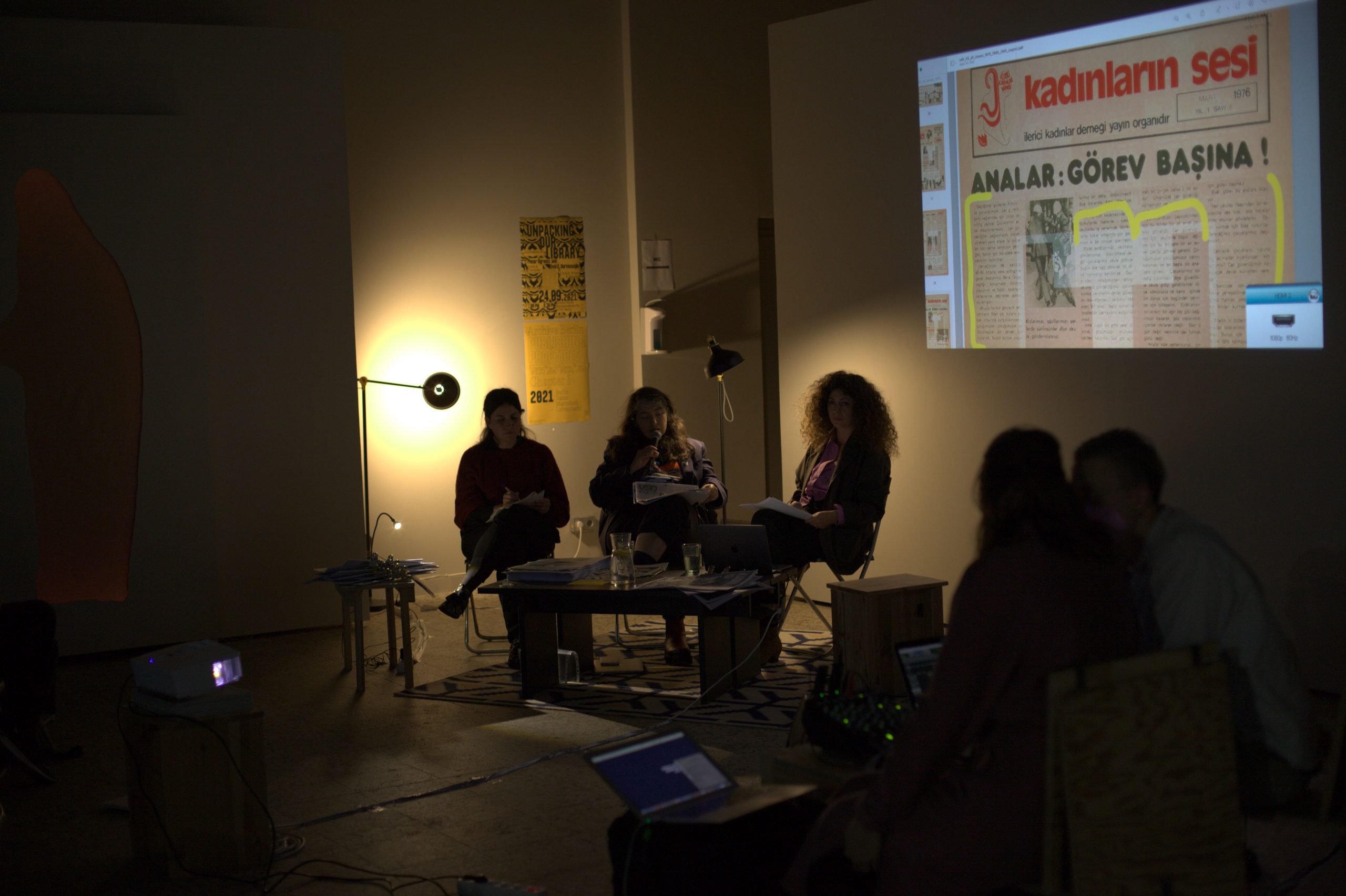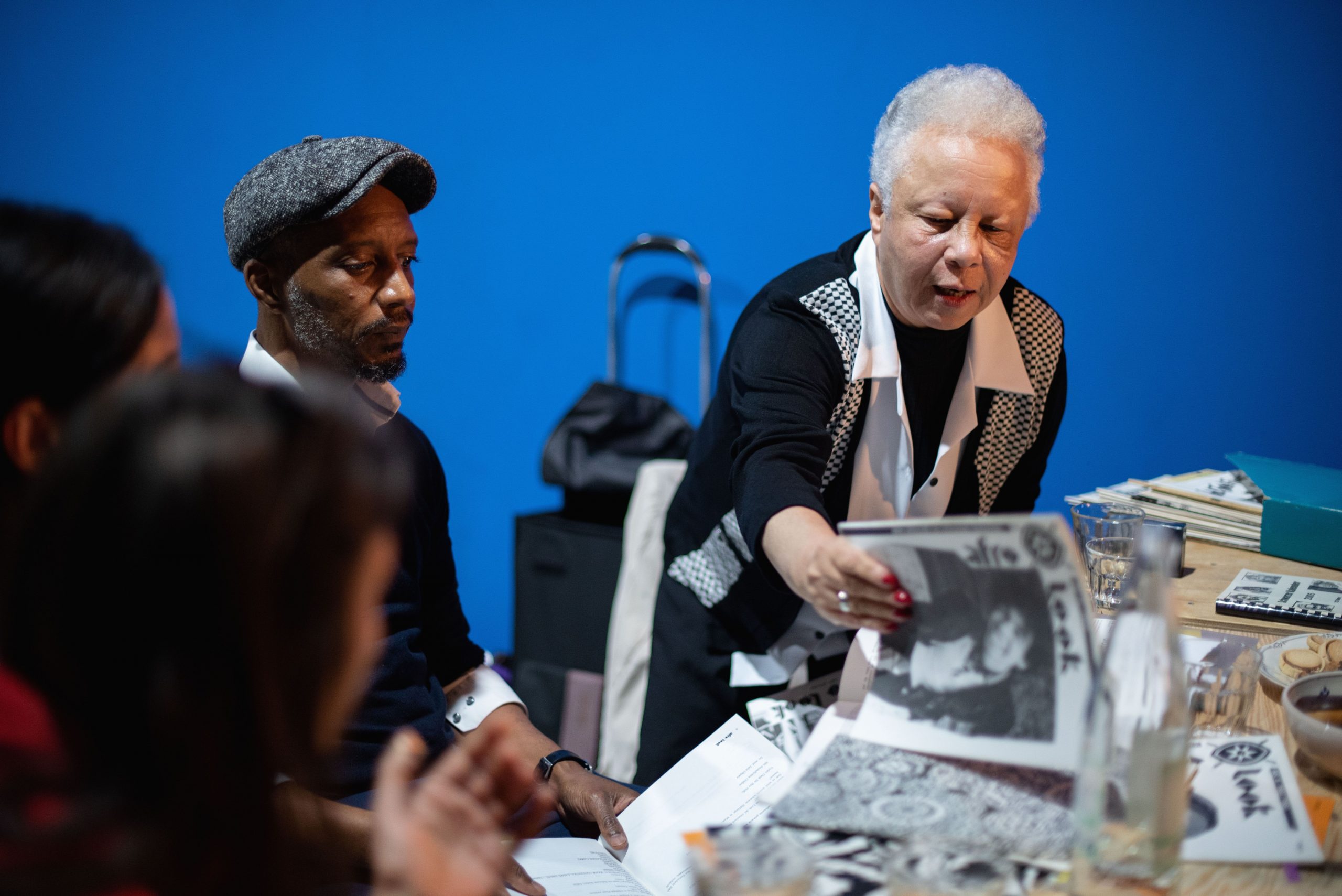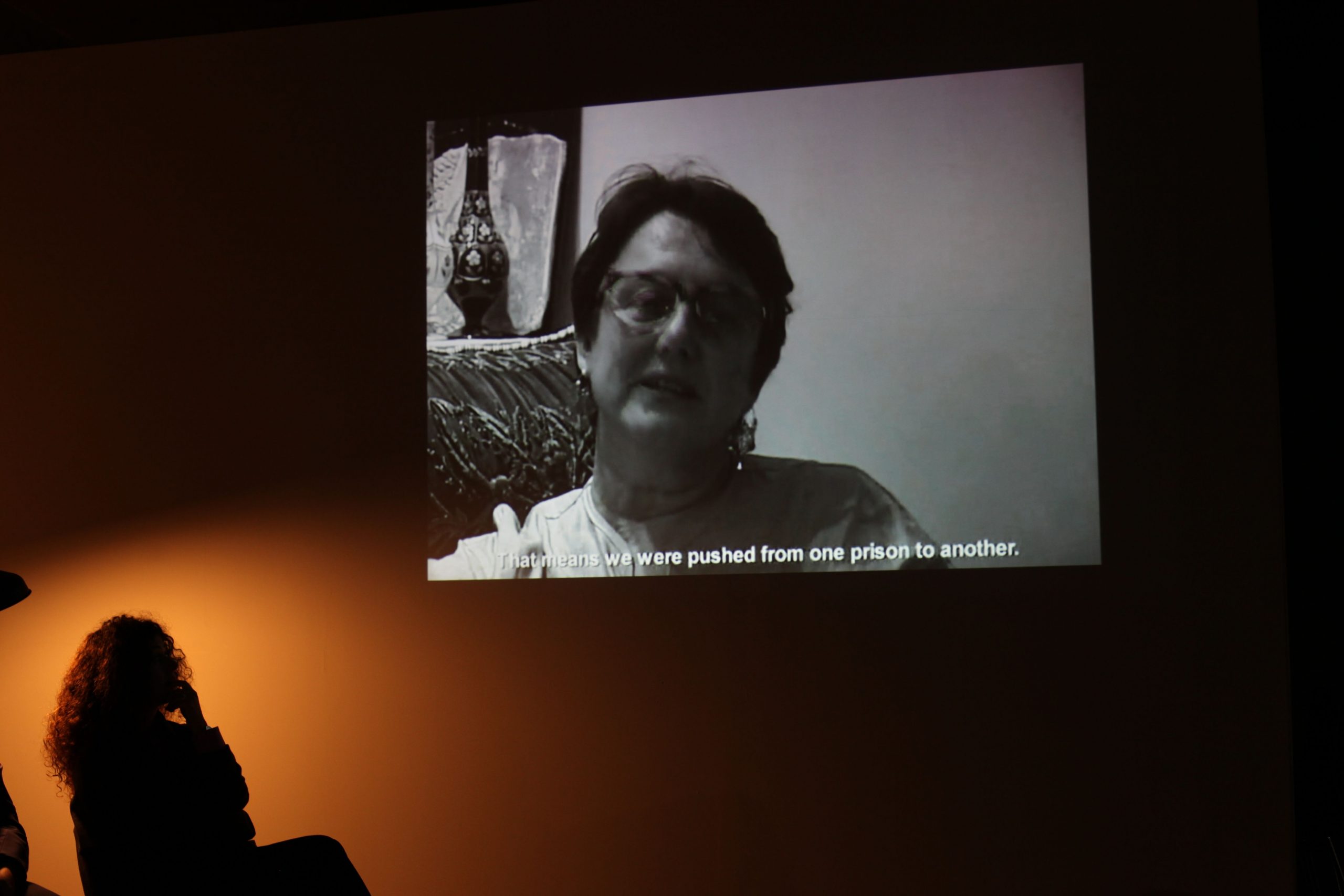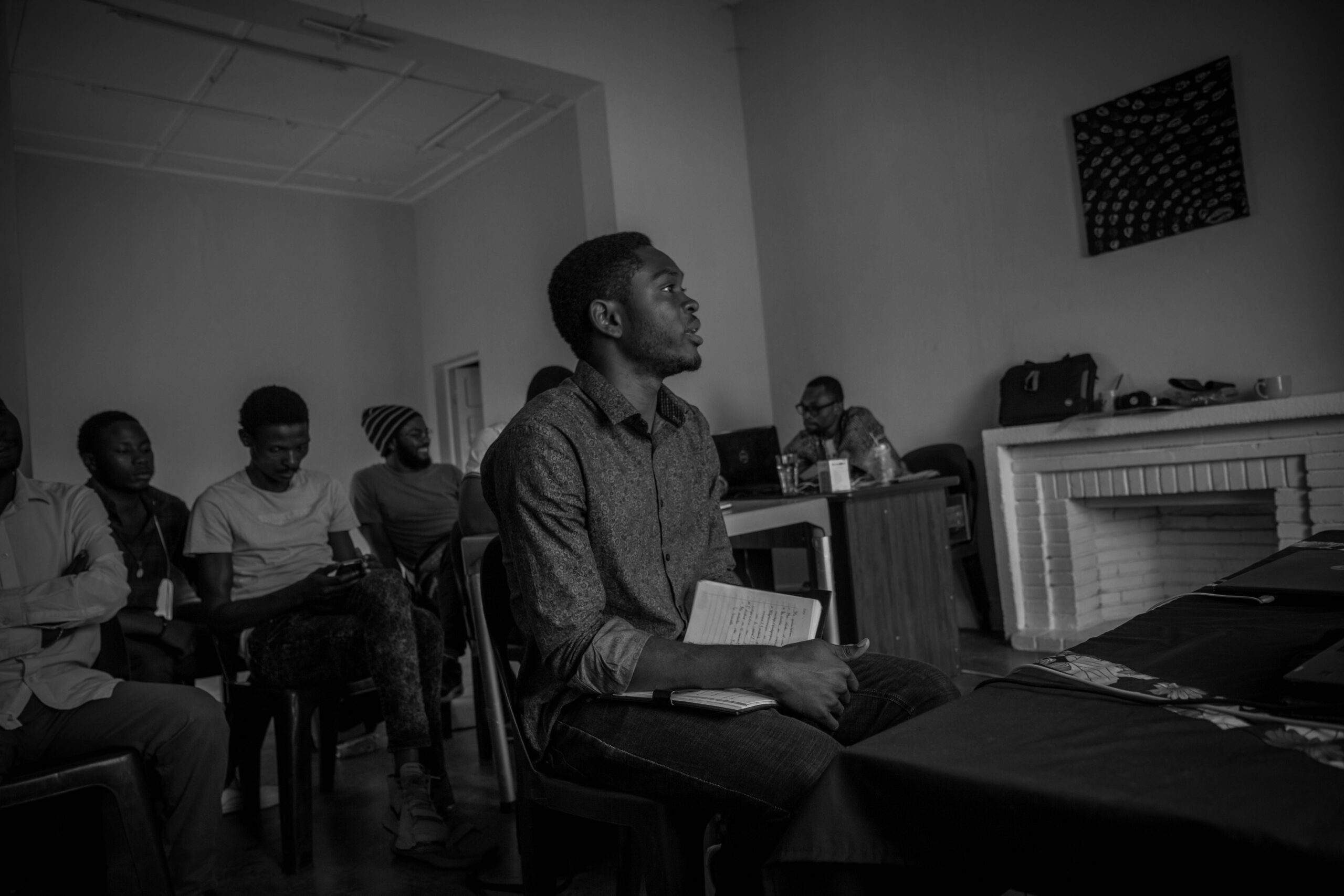
Publishing Practices
Publishing Practices is a yearly program committed to an expanded idea of publishing not confined to the production and dissemination of printed matters but open to a multi-sensorial reflection on other ways to know and exist.
How can we dismantle the way we know the world? What if the iterative power of knowledge as affirmed and reinforced by patriarchal, colonial and capitalist paradigms is replaced by publishing virtuality, its capacity to re-imagine the wor(l)d as “contingency and possibility” rather than “necessity and determinacy” (Denise Ferreira da Silva)? In which ways can publishing be activated as the ground for collective solidarity and inseparability, and participate in the undoing of fixed marginalities and boundaries?
Moved by these questions, and inspired by black feminist poethics, transnational feminism and anticolonial thought, Publishing Practices reflects on the potential of publishing as a subversive and emancipatory mode for nurturing and consolidating an ensemble of practitioners and organizations bound by a communal will to imagine and practice inseparability between form and content, human life and the elemental world, visuality and aurality, and sensation and hapticality.
The first edition of the program This Bridge Can Get us There unfolds around a set of events that will gather artists, writers, scholars, performers, and practitioners from the African continent and its diaspora to contribute, discuss, and co-create longstanding formats.
The Co-learning Forum is conceived as a four-week-long reunion in Berlin, and a rehearsal for a school of publishing imbued with the concept of ‘study’ proposed by Stefano Harney and Fred Moten. It draws inspiration from collective knowledge production traversed by anti-disciplinary, and reflexive approaches bringing forward situated, local and poethic knowledges. The forum underscores how knowledge production is always in-becoming, participatory, and contradictory and how learning as a horizontal practice can become insurgent.
A net of accomplices have been invited to inhabit and activate the space of the Forum regularly. The word accomplice stems from the Latin complicare which means to “fold, weave together.” By folding/bringing together a network of accomplices, we aim to create a transnational knowledge exchange that will foreground the remaining part of the program.
Together, they will reflect on the potential of publishing as a subversive and emancipatory mode for nurturing and consolidating an ensemble of practitioners and organizations bound by a communal will to imagine and practice inseparability between form and content, human life and the elemental world, visuality and aurality, and sensation and hapticality.
Some of the invited accomplices are: Laila Sit Aboha, Aziza Ahmad, Malab Alneel, Louiza Ammi, Ariella-Aïsha Azoulay, Leila Bencharnia, Touda Bouanani, Onur Çimen, Louise Dib, Marina Dubia, Untitled Duo, Each One Teach One(EOTO), Sofia Fahli, Sagal Farah, Michael Götting, Anissa Jousset, Ghady Kafala, Özlem Kaya, Yaniya Lee, Emanuela Maltese, Julia Mensch, Leila Belhadj Mohamed, Léa Morin, Nontsikelelo Mutiti, Arlette-Louise Ndakoze, Bonaventure Soh Bejeng Ndikung, Maya Ouabadi, Ricky Reiser, Iman Salem, Savvy.doc, Ghiwa Sayegh, Lerato Shadi, Wassyla Tamzali, Dior Thiam, Selam Tesfai.
Exhibition
December 4 – January 23
With contributions from Archive Inventory, Louiza Ammi, Leila Bencharnia, Sarah Brahim, Intilak (Touda Bouanani, Léa Morin, Maya Ouabadi), Katia Kameli, Julia Mensch, Nontsikelelo Mutiti, SAVVY.doc, Dior Thiam, Ezgi Tok, and more. Study Days
Study days
December 4 – 5
With Leila Bencharnia, Giovanna Esposito Yussif, Chiara Figone, Paz Guevara, Marcela Moraga, Beya Othmani and more.
This Bridge Can Get Us There exhibition and Study Days consider the potential of publishing as a subversive and emancipatory practice through the prism of transnational feminist methodologies and anticolonial thought. The exhibition will bring together artistic propositions in conversation with past and current publishing experiments that allow us to reflect on the multiple ways womxn from different locations and with different theoretical and practical background have devised in order to decenter both national and neocolonial power structures.
This Bridge Can Get Us There sets out to traverse publishing in its broader sense, considering different modalities of speech, translation, transmission, dissemination, and archiving. The exhibition and public program seeks to address this expanded sense of publishing practice by looking at varied emancipatory experiences while simultaneously exposing and reflecting on the invisible structuring mechanisms that lie behind the act of publishing, and the hegemonic systems of knowledge production informed by logocentric and Eurocentric views and languages.
Curatorial ensemble: Chiara Figone, Paz Guevara, Beya Othmani
Research: Onur Çimen, Aby Gaye, Amelie Jakubek, Emanuela Maltese
Publication display: Archive Inventory
Spatialisation: Ola Zielinska
Graphic Design: Untitled Duo (Soukaina Aboulaoula & Yvon Langué) in collaboration with Archive
Textiles: Gilberto Arroquete Djù, Coopérative de Femmes de Ourika
Photographic documentation: Denis Laner
Carpentry: Santiago Doljanin, Willem van den Hoek, Melwin Neumann

Unpacking Our Library
Unpacking our Library consists of a series of hybrid collective reading practices both digital and physical inhabiting the Archive Inventory library, in collaboration with accomplice libraries in Berlin. How do we inhabit a library collectively? How does a library become a medium for connecting readers’ trajectories, struggles and potential alliances? What are the strategies that collective readings set-up to create moments of exchange, solidarity and citizenship? The program engages with communal formats of readership – from workshops, reading groups, community libraries to reading clubs –, as well as with cultural practitioners, librarians, activists and artists. Each session put into play shared structures of archiving and reading, from digital collections, re-publications to translations and on-going investigations. By socializing collective models of library activations, the program collectively unpacks Archive’s library at its new home in Berlin. Each encounter fosters and nurtures a net of accomplices with whom to engage with in the long-term, weaving a format in which collaborations beyond the scope of this project are welcomed. The very word ‘accomplice’ stems from the Latin complicare which means to “fold, weave together” and bears the meaning of complexifying. By folding a network of accomplices, the program aims to create a kind of virtual publishing space, bringing together complex and multiple perspectives, a platform for research and a convivial web to collectively activate proposals of readership and archiving.

Activation #3

Activation #2

Activation #1
September 24, 2021
Departing from the pages of the largest feminist periodical in the mid 1970s in Turkey, Kadinlarin Sesi / Women’s voice, Pinar Öğrenci, artist and filmmaker, and Övül Ö. Durmusoglu, curator, writer, and educator will experiment and open up strategies of collective readings and library activations. While reading the archival materials, they will make connections between the experiments of former women generations and today’s artistic and cultural practices. Read more.

